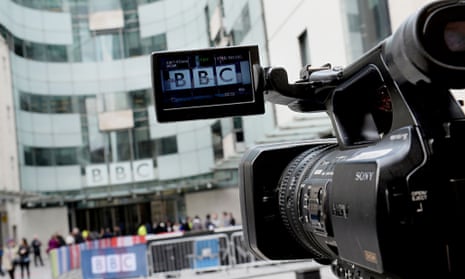Over recent weeks the media story – with a slight diversion for “Lord Coke”, bless him – has been the BBC. First a new licence fee deal, hastily agreed behind closed doors, giving it £700m worth of responsibility for over-75s’ licence fees and an effective budget cut over the next five years of between 10% and 15%. And then the government’s green paper kicking off the Royal Charter renewal debate, asking a string of entirely predictable and perfectly proper questions about the BBC’s purposes, scope, functions and funding. The government document was denounced by the BBC as little short of a full-on political assault – “a recipe for a diminished BBC” - but questions over its size and scale, its market impact and claims that the BBC crowds out commercial competitors loom large. There are issues that clearly need investigation, evidence and debate in relation to the BBC’s presence online, where it finds itself toe-to-toe with a press industry struggling for commercial viability. But what about its impact in the heartland arena of TV – where the big money is spent?
Conveniently, last week offered a chance to look at exactly how the BBC’s commercial rivals are spending that money, and how well they are doing at generating a return. And what a week they had – profits galore! ITV reported a 23% increase in half-year profits to just under £400m. To put that in context, full-year profits after the Carlton/Granada merger peaked at £360m in 2006 before the advertising recession and the global financial crisis saw them plunge to just £108m in 2009. So with the City expecting full-year profits up to around £830-850m, this is on course to be ITV’s strongest year since it became one company and possibly one of its strongest ever. All that in the face of its worst audience performance in 15 years, reaffirming a long-standing truth about ITV – that being beaten by the BBC in the ratings rarely has bad commercial consequences.
Indeed ITV’s chief executive Adam Crozier went so far as to compliment the BBC on the success of Strictly Come Dancing. As is traditional he added a line about wanting it to focus on “distinctiveness” and “originality” rather than simply chasing ratings, but failed to add the usual coda – trenchant criticism of The Voice as a bought-in foreign ratings chaser. That might have something to do with the fact that one of the production companies ITV has just spent close to £1bn buying owns, you’ve guessed it, The Voice.
In reality that huge splurge on production companies also means that ITV can fairly claim (at the headline level, at any rate) that its strategy of widening the number of pools from which it draws its revenues, to reduce dependence on potentially fickle advertising, is also working. Questions remain over whether the broadcaster has over-paid for some of its acquisitions – especially the American ones which for the most part, unlike their UK counterparts, do not own all the rights to their productions - and the network does need to address its declining audience share. But for the moment ITV is sitting very pretty indeed.
Then there was Sky. Record turnover, full-year profits of £1.4bn and just shy of an all-time high of 12 million customers in the UK and Ireland. Its German and Italian acquisitions appear to be going in the right direction, while broadband subscriptions and so-called “triple play” subscribers - taking TV, telephone and internet in one package – are both on the increase. There are challenges too, of course. BT has snaffled Champions League football and Netflix and Amazon Prime are growing as potential competitors – although recent Barb data suggests many Netflix subscribers are upmarket families who use the service in addition to their Sky subscriptions.
Throw in not only BT, where securing premium sports rights has helped stop the rot at the company’s broadband business, and where profits in the consumer division (TV and broadband) are up 7%, but also Amazon Prime’s £160m deal for the “Top Gear Three”, and commercial television is on quite a roll.
Taken together the numbers make the idea mooted in the green paper - that the BBC is “crowding out” or in any way impeding its commercial rivals, in TV at least - seems almost absurd.
Indeed if there’s any cause for concern it might be something nearer the opposite: in other words that, after round after round of cutbacks (and in fairness an ongoing struggle too with its own inefficiency), the BBC could be in danger of being left behind. Sky may be planning 35 new drama projects in the next three years across Europe, but the BBC commissioned 48 in just the last year, all with a total TV budget that is likely to come in at less than the combined annual profit Sky and ITV make for their shareholders.
